第155章 CHAPTER XXXIX(2)
Yet is it most true that the younger has the passions of youth: whereof will come division between them; and this is a tragic state. They are then pathetic. This was the state of Sir Willoughby lending ear to his elder, until he submitted to bite at the fruit proposed to him--with how wry a mouth the venerable senior chose not to mark. At least, as we perceive, a half of him was ripe of wisdom in his own interests. The cruder half had but to be obedient to the leadership of sagacity for his interests to be secured, and a filial disposition assisted him; painfully indeed; but the same rare quality directed the good gentleman to swallow his pain. That the son should bewail his fate were a dishonour to the sire. He reverenced, and submitted. Thus, to say, consider him indulgently, is too much an appeal for charity on behalf of one requiring but initial anatomy--a slicing in halves --to exonerate, perchance exalt him. The Egoist is our fountain-head, primeval man: the primitive is born again, the elemental reconstituted. Born again, into new conditions, the primitive may be highly polished of men, and forfeit nothing save the roughness of his original nature. He is not only his own father, he is ours; and he is also our son. We have produced him. he us. Such were we, to such are we returning: not other, sings the poet, than one who toilfully works his shallop against the tide, "si brachia forte remisit":--let him haply relax the labour of his arms, however high up the stream, and back he goes, "in pejus", to the early principle of our being, with seeds and plants, that are as carelessly weighed in the hand and as indiscriminately husbanded as our humanity.
Poets on the other side may be cited for an assurance that the primitive is not the degenerate: rather is he a sign of the indestructibility of the race, of the ancient energy in removing obstacles to individual growth; a sample of what we would be, had we his concentrated power. He is the original innocent, the pure simple. It is we who have fallen; we have melted into Society, diluted our essence, dissolved. He stands in the midst monumentally, a land-mark of the tough and honest old Ages, with the symbolic alphabet of striking arms and running legs, our early language, scrawled over his person, and the glorious first flint and arrow-head for his crest: at once the spectre of the Kitchen-midden and our ripest issue.
But Society is about him. The occasional spectacle of the primitive dangling on a rope has impressed his mind with the strength of his natural enemy: from which uncongenial sight he has turned shuddering hardly less to behold the blast that is blown upon a reputation where one has been disrespectful of the many. By these means, through meditation on the contrast of circumstances in life, a pulse of imagination has begun to stir, and he has entered the upper sphere or circle of spiritual Egoism: he has become the civilized Egoist; primitive still, as sure as man has teeth, but developed in his manner of using them.
Degenerate or not (and there is no just reason to suppose it) Sir Willoughby was a social Egoist, fiercely imaginative in whatsoever concerned him. He had discovered a greater realm than that of the sensual appetites, and he rushed across and around it in his conquering period with an Alexander's pride. On these wind-like journeys he had carried Constantia, subsequently Clara; and however it may have been in the case of Miss Durham, in that of Miss Middleton it is almost certain she caught a glimpse of his interior from sheer fatigue in hearing him discourse of it. What he revealed was not the cause of her sickness: women can bear revelations--they are exciting: but the monotonousness. He slew imagination. There is no direr disaster in love than the death of imagination. He dragged her through the labyrinths of his penetralia, in his hungry coveting to be loved more and still more, more still, until imagination gave up the ghost, and he talked to her plain hearing like a monster. It must have been that; for the spell of the primitive upon women is masterful up to the time of contact.
"And so he handed her to his cousin and secretary, Vernon Whitford, who opened his mouth and shut his eyes."
The urgent question was, how it was to be accomplished.
Willoughby worked at the subject with all his power of concentration: a power that had often led him to feel and say, that as a barrister, a diplomatist, or a general, he would have won his grades: and granting him a personal interest in the business, he might have achieved eminence: he schemed and fenced remarkably well.